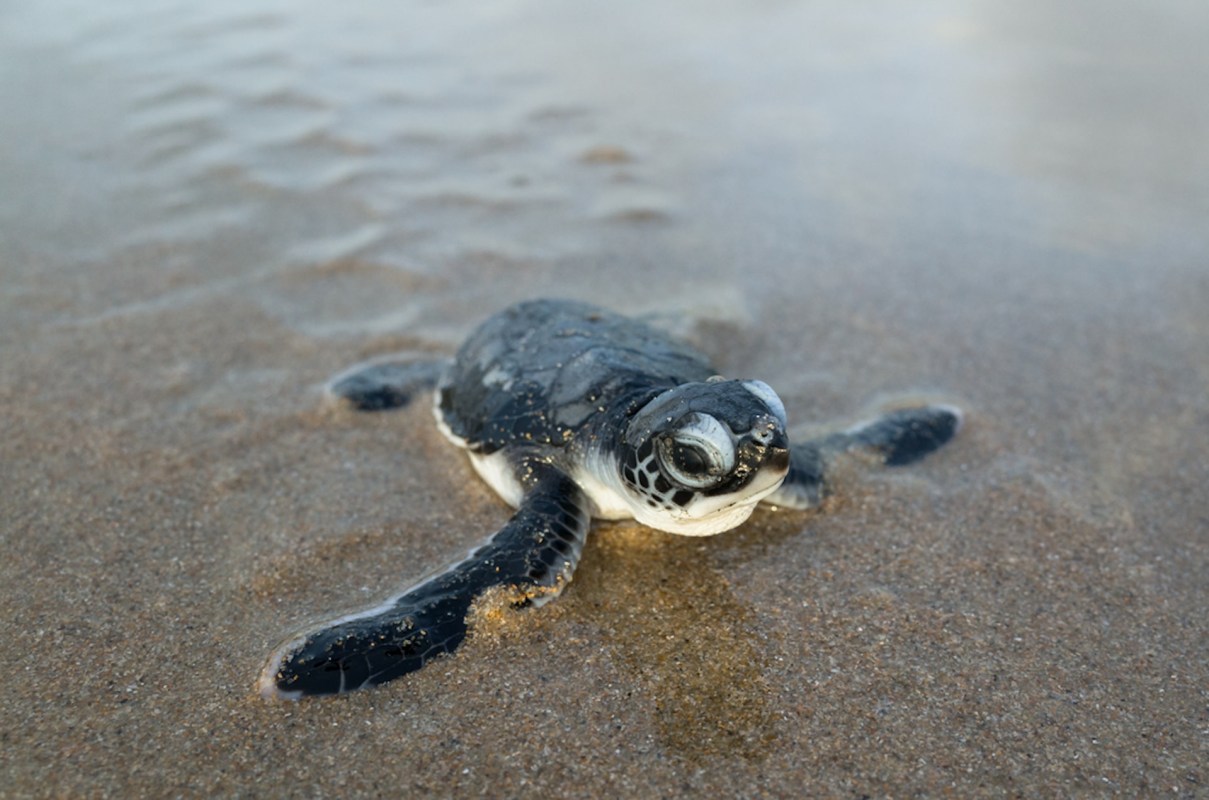One baby sea turtle found off the coast of Australia had a rough start to life — his stomach was filled with plastic, which he pooped out for nearly a week. Now, after 18 months of rehab, he's back at sea.
What happened?
In July 2022, a green sea turtle hatchling, later known as Tama, was found lying on his back in a rock pool on a beach near Sydney. He was missing one flipper and had suffered a chip in another. Plus, his shell indicated he'd been bitten by another animal.
But the most surprising discovery was made inside this young turtle — gobs of plastic pieces in a rainbow of colors and a variety of shapes. After his admission to Sydney's Taronga Wildlife Hospital, part of Taronga Zoo Sydney, Tama defecated plastic for six days.
"The fact that he pooped plastic for six days is shocking," said Sarah Male, senior keeper at the Taronga Zoo Sydney, via news release. "That means that the food that he took in [during] the first couple of days that he was alive and out in the ocean was plastic. It was all different kinds of plastic; hard plastics, little bits of rope, line. … His whole body was full of it."
Now things are looking brighter for Tama. In December, after 18 months of human care, he was released back into Sydney Harbour to live a wild life.
A video, which also documented the release, showed some of the pieces of plastic that had been inside the tiny turtle upon his arrival.
Why is ocean plastic concerning?
A 2023 study revealed that about 170 trillion pieces — an estimated 2.6 million tons — of plastic are floating in the ocean. Most of these are microplastics, or tiny fragments of plastic that are broken down from larger pieces and extremely difficult to remove from the water.
Tama is not the first animal to fall victim to plastic pollution in our ocean. According to World Wildlife Fund Australia, the stuff kills an estimated 100,000 marine animals each year. Some become entangled in larger pieces of plastic, while others ingest it.
What can I do about ocean plastic?
Every person can do their part by reducing the amount of plastic they throw out. You can slash your plastic consumption by purchasing reusable, durable items instead of single-use plastics. Start with products such as metal razors, reusable water bottles, shampoo bars, dissolvable dishwasher and laundry pods, and non-plastic sandwich bags.
Inevitably, we will all still encounter plastics in our lives, and that's where recycling comes in. Research your city's recycling rules to see what you can put out on the curb or take to the recycling center. This guide can help demystify plastics recycling by explaining how to recycle Ziploc bags, bubble wrap, and other items.
Join our free newsletter for cool news and cool tips that make it easy to help yourself while helping the planet.









